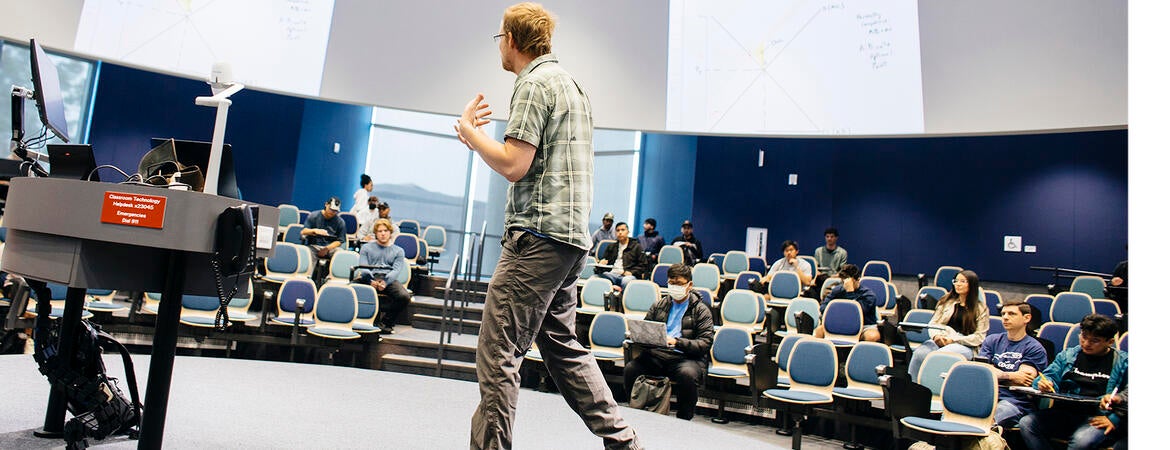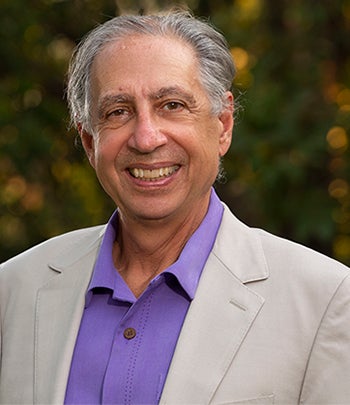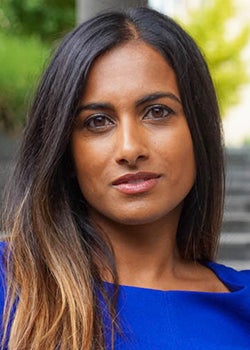
On several University of California campuses, written statements by applicants for faculty positions about their contributions to diversity have been used as one of many strategies in efforts to create campus environments in which students, faculty, and staff can thrive without regard to their sex, race, religion, sexual orientation, age, or physical abilities.

In a paper published Tuesday, Oct. 24, Steven Brint, a professor of sociology and public policy at UC Riverside, and Komi Frey, a researcher at the Foundation for Individual Rights and Expression, argue that in practice the use of diversity statements can come into conflict with academic freedom protections. In some cases, they argue, the statements can also lead to ill-advised restrictions on the range of acceptable discourse on campus. The paper is based on a historical study of changes in UC policy, survey data, and some 100 interviews with UC faculty colleagues.
Brint and Frey are particularly critical of the use of
diversity, equity and inclusion (DEI) statements as the initial screen to reduce faculty applicant pools. At least five University of California campuses, including UC Riverside, used diversity statements in this way in searches between 2016 and 2022.
“DEI statements as initial screens in faculty hiring represent a direct challenge to the bases of academic freedom because these searches do not include a review of research and teaching expertise,” they write in the paper published by the UC Berkeley Center for Studies in Higher Education. Research and teaching expertise are foundations of academic freedom and tenure, Brint said.
Even when they are not used as initial screens, Brint said the use of diversity statements in hiring can be problematic. Some rubrics used to evaluate DEI statements have given higher scores to those who show they have worked to advance social justice causes and low scores to those who believe all students should be treated equally, he said.
“These are debatable positions,” Brint said. “And this type of scoring creates the appearance of a political test. Political tests for employment at UC are not permitted.
“Some people are excellent mathematicians, and they also know how to teach mathematics, but they haven't devoted their life to social justice,” Brint said. “They should not be penalized for that.”
Brint and Frey further assert, “DEI officers and their staffs, together with campus activists, can and have in some cases created a climate in which fear of ostracism or sanctioning exists among those taking position that run counter to prevailing views and practices related to DEI and social justice.”
The paper is controversial. The Berkeley Center simultaneously published six responses from other California scholars and administrators that range from staunch disagreement to strong support. Two of the responses are from UCR faculty.
In a critical response, Uma Jayakumar, an associate professor at UCR’s School of Education, said that Brint and Frey under-emphasize the contributions of diversity statements and DEI emphases on UC campuses.

“My own research has shown that understanding racially minoritized students’ experiences can illuminate lingering exclusionary institutional norms, organizational cultures, and practices to inform educational interventions that move campuses toward healthy racial climates that promote learning and growth for students (and faculty) of all racial backgrounds,” Jayakumar wrote. “Whether the use of these (DEI) statements is successful in supporting all these things is a matter for genuine investigation, but the authors fail to make a convincing case that their use in screening is necessary or sufficient to constrain academic freedom.”
Georgia Warnke, a UCR distinguished professor emerita of political science, however, was supportive Brint and Frey’s arguments in her published response. “If a faculty member’s research concerns the direst environmental threats to the planet, should we really criticize that faculty member for failing to mention race, ethnicity or gender in a diversity statement? … Efforts at diversifying the faculty and employing the best and the brightest are clearly not at odds. Yet current DEI procedures are overly geared towards optics,” Warnke wrote.
The Brint and Frey paper, “Is the University of California Drifting Toward Conformism? The Challenges of Representation and the Climate for Academic Freedom,” is available on the UC Berkeley Center for Studies in Higher Education website. The responses and a rejoinder by Brint also appear with the essay.
The other published responses are by Henry Reichman, professor emeritus of history at California State University, East Bay and a former chair of the American Association of University Professors Committee A on Academic Freedom; Johnnella E. Butler, professor emerita of comparative women’s studies at Berkeley and the former provost of Spelman College; Sharon Inkelas, associate vice provost for the raculty and special faculty advisor to the UC Berkeley chancellor on campus welfare and Erwin Chemerinsky, dean of the UC Berkeley School of Law; and David A. Hollinger, the Preston Hotchkis professor emeritus of history at the University of California, Berkeley.
Cover photo by Elena Zhukova, University of California.



